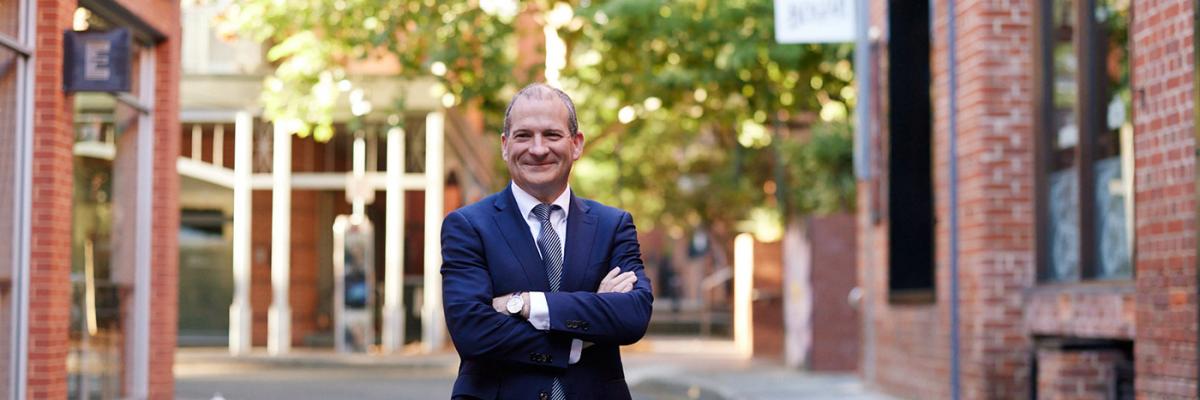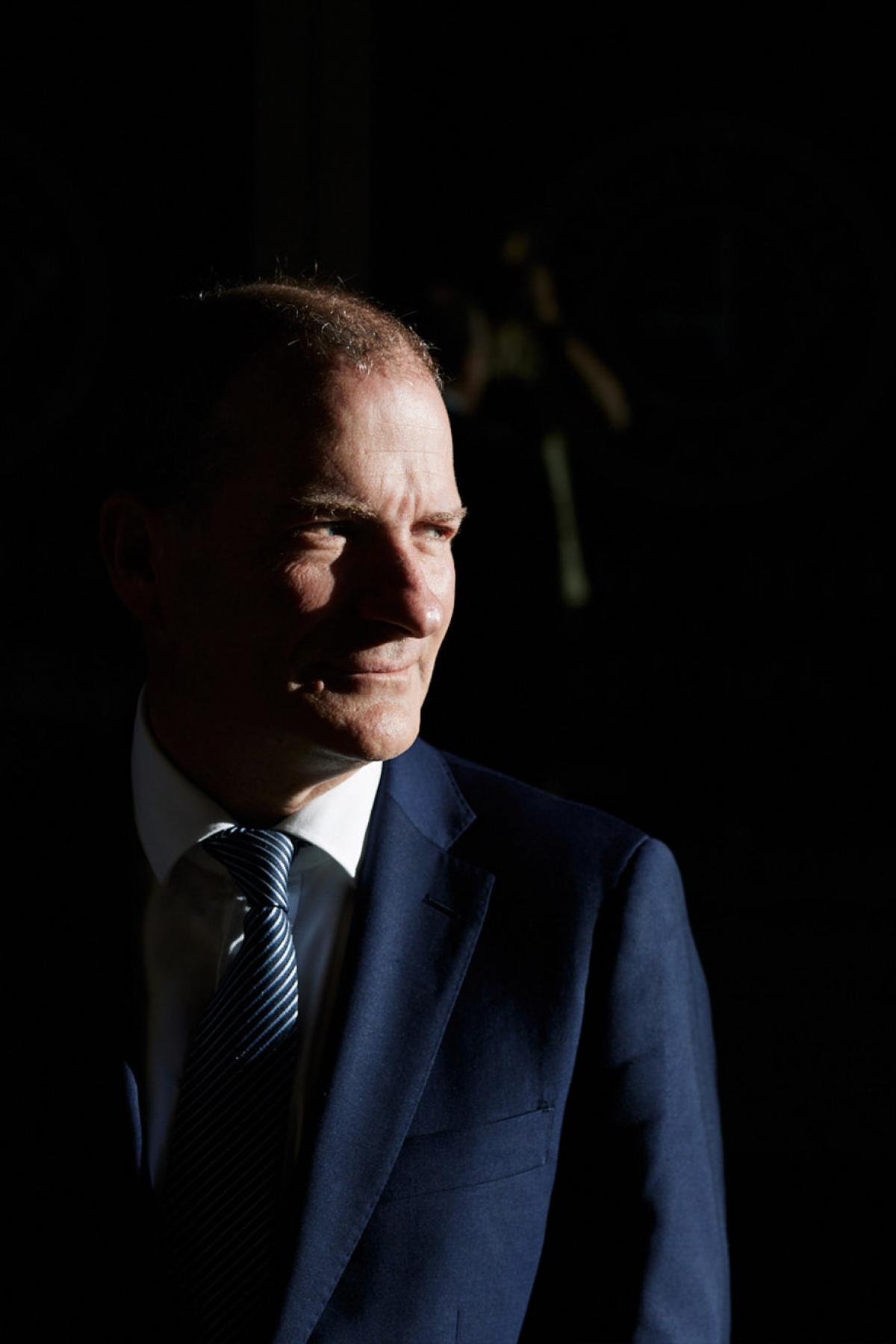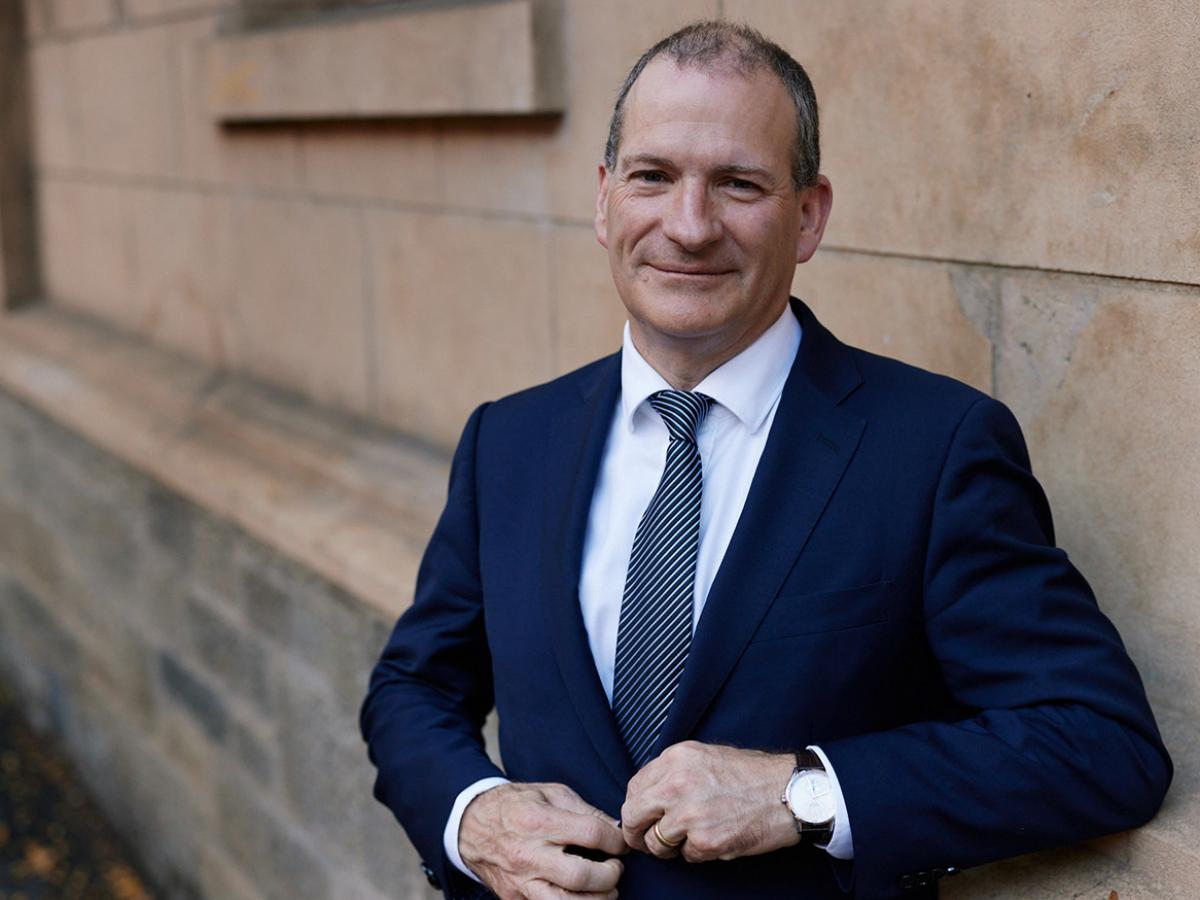Bringing together the best minds to fight cancer
The cancer institute enticing some of the world's best cancer researchers to Adelaide

Christopher Sweeney has an impressive resume. He’s currently the Medical Oncologist at the Dana-Farber Cancer Institute in Boston, Massachusetts, and a Professor of Medicine at Harvard Medical School. But it’s the opportunity to head up South Australian immunoGENomics Cancer Institute (SAiGENCI) that is finally bringing Chris home to Adelaide.
Founded by an $80 million investment from the federal government, SAiGENCI is a cancer-focused medical research institute centred on cancer research and clinical trials, which will include new cutting-edge technologies in immunotherapies and genomics. SAiGENCI will bring in the most advanced technologies and unparalleled expertise to cancer diagnosis, treatment and care, providing an immediate impact to all cancer patients and their families. Collaboration is at the heart of the Institute, bringing together all of the cancer research in Adelaide from the University of Adelaide, SAHMRI, the University of South Australia and Flinders University.

“We can coordinate more effectively and have the whole of Adelaide be competitive on the national and international stage,” said Chris. “Instead of having isolated pockets, if we can do some big projects together and have joint seminars to share ideas, we'll actually be one large cohesive unit that will be much more globally competitive as well as efficient and effective.”
The Institute is an alliance between the Central Adelaide Local Health Network (CALHN) and the University of Adelaide. The aim is to recruit cancer researchers from across the globe and bring them to Adelaide to help fight one of the world’s most devastating diseases. “We’ve made a very strategic decision to complement the cancer research excellence that is in the University of Adelaide and the state by bringing new researchers from outside South Australia, the needed critical mass, to ask big questions and do big projects,” said Chris.
From a young age, Chris knew he wanted to work in medicine; however he kept his ambitions to himself until he secured a spot in medical school. He completed his medical degree at the University of Adelaide and began his career at the Royal Adelaide Hospital, where he completed his internship and residency before moving to the United States, where he undertook his residency at the Gundersen Lutheran Medical Centre, La Crosse, WI (USA).
It was during these early years of his career Chris decided he wanted to work in the kind of medicine that would really make a difference to some of the sickest people he had encountered – those fighting cancer. “If you're going to do medicine, you might as well do something where people are really unwell, I thought. “I really enjoyed the mission-driven nature of cancer care. And as I was doing it, I was going ‘well, the treatments aren't good enough and we need to do better’, so I got into cancer research,” he said.
Chris completed a Fellowship in Hematology-Oncology at Indiana University Hospital, where he went on to become Assistant Professor of Medicine and then Associate Professor of Internal Medicine. It was at Indiana University Hospital where his interest in men’s health, and particularly prostate and testicular cancer, was sparked. “Indiana University had a very strong track record in genitourinary cancer. It's where the regimen that cures testicular cancer was developed. Following in their footsteps, I became more and more interested in the research process around cancer in general, but prostate and testes specifically,” he said. At Indiana, Chris had the opportunity to work with mentor Larry Einhorn, the doctor behind the testicular cancer breakthrough. “I got to work with him and the faculty he had trained, saw their style and approach, and that was inspiring, and I modelled myself on that style,” he said.

Chris briefly returned to the University of Adelaide in 2008 as Professor in the Faculty of Health Sciences and Director of Clinical Trials at the Royal Adelaide Hospital, but it wasn’t long before he was enticed to return to the United States in 2010 by Harvard Medical School where he was appointed Associate Professor and then Professor in 2018.
Chris is one of the only researchers to hold the honour of delivering two plenary sessions at the prestigious American Society of Clinical Oncology meeting (one in 2014 and again in 2019). He also has a string of awards to his name, including the 2014 George Canellos Award for Excellence in Clinical Investigation and Patient Care; the 2012 Stephen Fine Outstanding Teaching in Cancer Medicine Award; and most recently, in 2020, he and Dr Ian Davis were awarded Australian Clinical Trials Alliance Research Clinical Trial of the Year Award for the leadership of the ENZAMET trial.
The opportunity to return to Adelaide as Director of SAiGENCI has come at the perfect time for Chris. Armed with a wealth of knowledge and experience from around the globe, he says it was the right time to return home. “I just feel like it's time to come back home.
"We've made a very strategic decision to complement the cancer research excellence that is in University of Adelaide and the state by bringing new researchers from outside South Australia, both nationally and internationally, into Adelaide."Professor Christopher Sweeney
"Fortunately, the amazing opportunity of SAiGENCI arose. I've learned a lot. I have developed a lot of networks, collaborators, and a lot of experience that I hope to be able to bring to Adelaide and help connect established researchers, as well as all the new researchers that we're bringing into Adelaide, as part of SAiGENCI,” he said.
Chris will take over the role as Director of SAiGENCI in December 2022. Of course, a big positive of returning to Adelaide will be the opportunity to be closer to family once again. “It will be great to be back with family. There's no doubt about that. And close proximity of the beach and the hills, and just the wonderful, quality lifestyle. Whether you describe Adelaide as a big town or a small city, it’s just about right for me now,” he said.
To learn more about SAiGENCI and the current research they are undertaking, please visit adelaide.edu.au/saigenci
Story by Renee Capps
Photos by Josh Geelen
